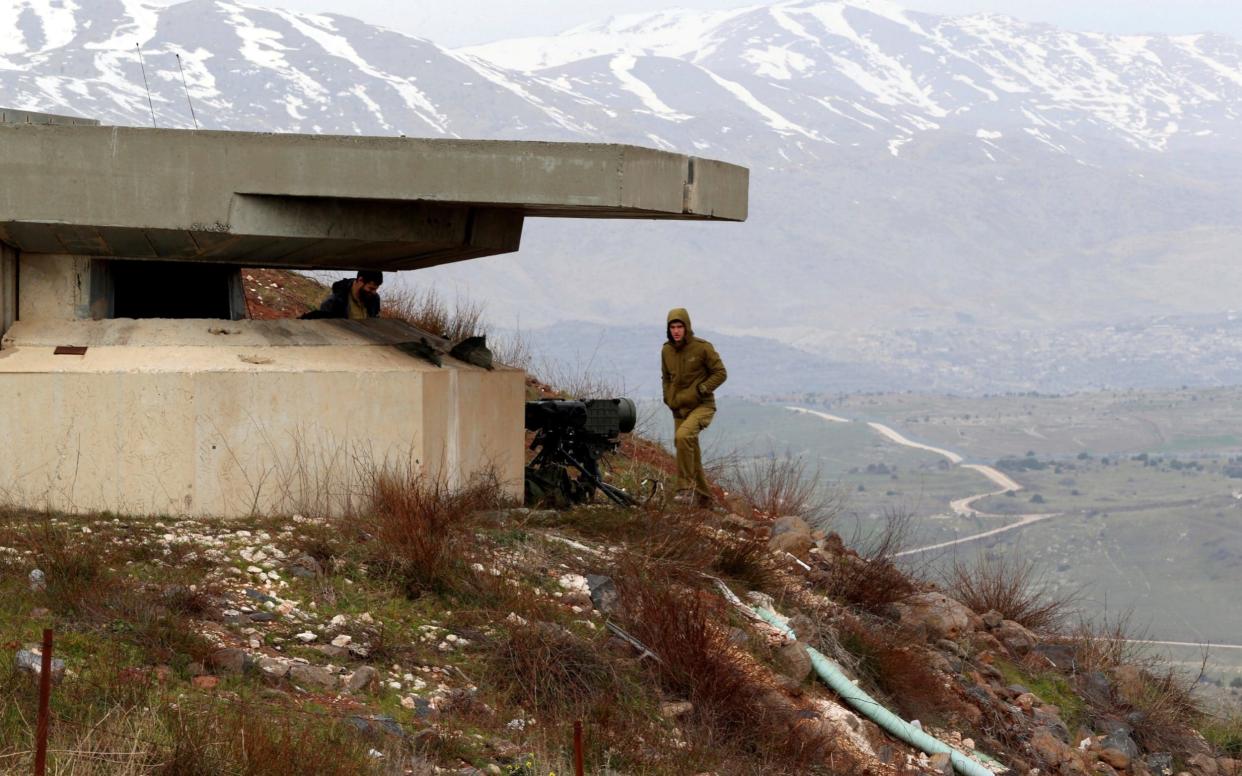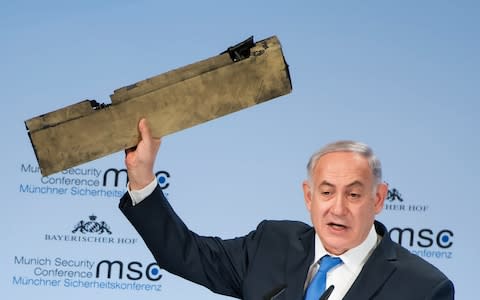Iran pledges to destroy Israel within 25 years as tensions rise

The head of Iran’s army, Abdolrahim Mousavi, threatened to “annihilate” Israel on Saturday as tensions escalated between the two countries.
At a ceremony in Tehran, Mr Mousavi warned that any acts of war against his country would put his country on the offensive.
“Hands are on the trigger and missiles are ready and will be launched at any moment that the enemy tries to carry out its sinister plot against (our) lands,” Tasnim news agency quoted him as saying.
His comments came a day after the Iranian Brigadier General Hossein Salami also issued a threat and said Israel could be destroyed if tensions escalate to war.
Salami added Israel would “fade away” in the next 25 years despite the support it receives from the United States.
"If any war happens , it will definitely be followed by your annihilation.
Israeli Prime Minister Benjamin Netanyahu fired back at Salami on Friday.
"We hear the threats from Iran. IDF fighters and the security branches are ready for any development. We will fight anyone who tries to harm us,"

Since 2013, Israel has carried out more than 100 airstrikes in Syria, primarily targeting the Iranian-funded Lebanese militia group Hezbollah and military convoys, but since the beginning of this year Israel expanded its involvement to increasingly target Iran directly.
A missile strike earlier this month, which killed seven Iranian military advisors from the country's elite Quds Force in the Syrian city of Homs, has been neither confirmed nor denied by Israel's government.
However, New York Times’ columnist Thomas Friedman wrote that a senior Israeli military official admitted to him that Israel attacked the Syrian base known as T4, in a separate attack. "It was the first time we attacked live Iranian targets - both facilities and people," the official reportedly said.
Last week, the Wall Street Journal also reported the Israeli military targeted an Iranian air-defense system at T4 and a drone deployment to try to prevent Iran from using the anti-aircraft battery against Israeli jets carrying out strikes in Syria.
Israeli Army’s spokesman, Brig Gen Ronen Manelis, said on Friday the path and analysis of the drone indicated that “the aircraft was carrying explosives”.
"Tel Aviv will be punished for its aggressive action," Iranian Foreign Ministry spokesman Bahram Ghassemi told local press last week. "The occupying Zionist regime will, sooner or later, receive an appropriate response to its actions."
Iranian Foreign minister Mohammad Javad Zarif later said in a US television interview that further Israeli sorties in Syria would have "consequences". But he deemed major escalation as unlikely.
"I do not believe that we are headed towards regional war but I do believe that unfortunately, Israel has continued its violations with international law, hoping to be able to do it with impunity because of the U.S. support and trying to find smokescreens to hide behind," Zarif told CBS News.
"The easiest answer would be to stop - to stop these acts of aggression, to stop these incursions."

